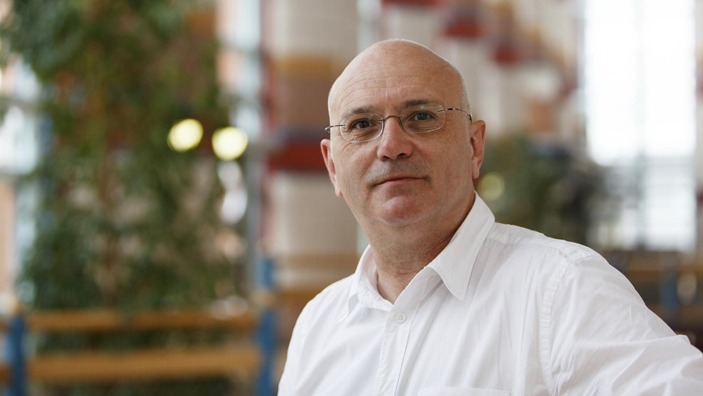In the UK, as elsewhere, local governments and grassroots citizens’ groups share an interest in regenerating communities left behind by deindustrialisation and other sweeping economic changes.
Yet the results of regeneration projects have been decidedly mixed, often due to tensions between top-down (government) and bottom-up (community) approaches, so many projects offer only short-term cosmetic changes rather than lasting fixes.
Leading regeneration in Luton through community social enterprise
A book chapter co-authored by a community activist and 2 academics from the Cambridge Centre for Social Innovation at Cambridge Judge Business School looks at a project in the city of Luton, 35 miles northwest of London, which has enjoyed success at revitalising a community left reeling from factory closures and suburban blight dating back decades. Focusing on the community social enterprise of Marsh Farm Outreach (MFO), the chapter says that MFO’s achievement is tied to “linking divergent perspectives” in order to overcome frictions and build the capacity of the local community as a whole.
The Cambridge Centre for Social Innovation has often focused on how community organisations meet the challenge of navigating government bureaucracy while overcoming unrealistic expectations given their limited funding. Yet Marsh Farm Outreach “stood out as the UK organisation which embodied the power-struggle most vividly,” says the chapter, adding that MFO’s “definition of community participation was the most radical. Their vision was for residents to take control of regenerating the most deprived neighbourhoods. They had little to lose, and they were not afraid to take risks”.
The book chapter – entitled “From Welfare to Work: Marsh Farm Outreach and the ‘Organization Workshop’ in Luton, United Kingdom” – forms part of a new book published by Memorial University Press of Newfoundland in Canada: ‘Revitalizing PLACE through Social Enterprise’. The Centre for Social Innovation has a longstanding relationship with Memorial University, including an exchange of Fellows.
The book chapter is co-authored by Dr Michelle Darlington, Head of Knowledge Transfer at the Cambridge Centre for Social Innovation; Glenn Jenkins, Grassroots Community Organisation Facilitator at Marsh Farm; and Neil Stott, Co-Director of the Cambridge Centre for Social Innovation and Management Practice Professor of Social Innovation at Cambridge Judge.
It reflects the Centre’s mission “to bring academics and practitioners together to enhance understanding of, and the impact of social innovation.” Neil and Michelle have co-authored several other studies in recent years, including a focus on the role of community enterprise in sustainability, a history of black and minority ethnic housing associations in England, and a ‘long view’ on community enterprise.


Applying Global South Organisation Workshop concept to Marsh Farm
The chapter looks at MFO’s origins and its success in bringing to the UK the concept of an Organisation Workshop (OW), a self-organising community capacity-building process that the authors say has deep roots in the Global South but not in Britain. “The OW can appear strange to community organisers in the Global North, who tend to work with relatively small neighbourhood or community groups. The OW brings groups together to achieve an objective without external leadership. In the process, they learn to self-organise,” the authors say.
End goals of OWs vary depending on the community: these could involve revitalising an overlooked area, innovating, leveraging production resources, or establishing community governance. It is necessary for an OW to be on a larger scale due to the comprehensive and interconnected aspects of enhancing community capacity.
The Organisation Workshop brings groups together to achieve an objective without external leadership. In the process, they learn to self-organise.
Saving Marsh Farm stopping widespread rioting through community action
The authors outline how the Marsh Farm suburb town of Luton was built in the 1950s and 1960s as an industrial hub with affordable homes, often lived in by workers in the area’s huge Vauxhall automobile plant. Chapter co-author Glenn Jenkins, who grew up in Marsh Farm, reminisces how the area previously had a feeling of “solidarity and belonging. You knew your neighbours, and everyone was connected.”
However, in the 1980s, during the time of Margaret Thatcher’s UK government, there was mass migration out of Luton as major industries shut down, sending unemployment soaring to 12% in 1984. Dissatisfied with the state of his community, Glenn began to think of initiatives to rejuvenate Marsh Farm. In 1992 he became a founding member of the Exodus Collective, which formed a housing co-operative in which people came together to renovate a derelict farm and former hospice.
Exodus Collective established “Dance with a Stance” – community-organised dances in some of the derelict land in the area, such as disused quarries, farms and factories, in efforts to boost the morale of a disheartened population. These dances are credited with helping to stop widespread 1995 rioting in Luton due to social unrest, by drawing people away from rioting and towards dancing – demonstrating the community’s ability to self-organise and diffuse conflict.
Leading economic revival despite resistance from local authorities
In 1999, the collective grew further, joining forces with over 30 residents’ groups and partner organisations to form the Marsh Farm Community Development Trust. Through the new Labour government’s New Deal for Communities programme, the Trust won £48m in regeneration funding over the next decade, and then implemented a community empowerment strategy that became March Farm Outreach. This further enabled community ownership, creating activities for children, arts and music events, and consultations that led to residents designing green spaces and other improvements.
Yet the Trust was continuously running into issues with local authorities, who held an audit that criticised the organisation’s lack of “management oversight”. This effectively stopped funding for the Marsh Farm Collective, which had to reinvent itself.
So MFO, still committed to realising the Organisation Workshop in Luton, launched an initiative in 2005 called Plugging the Leaks. Spanning two years, this programme pushed for expanding local capacity to drive community-driven economic revival.
“MFO’s vision was to create self-sustaining community businesses and ‘plug the leaks’ in their local economy, but the path to achieving this vision proved to be a challenging, decade-long journey” as local officials baulked at such a “novel and contentious” idea as an Organisation Workshop. Yet instead of seeing these hurdles as setbacks, Marsh Found Outreach found humour and motivation in its challenges.
“If they could overcome this obstacle, it would create a precedent of government support for authentic grassroots participation,” the authors say. “There were moments of confusion, arguments, and setbacks, but these discomforts are a necessary part of the OW…. Working together to overcome them is the key.”
MFO's vision was to create self-sustaining community businesses and ‘plug the leaks’ in their local economy, but the path to achieving this vision proved to be a challenging, decade-long journey.
Securing support from MP results in adult education programmes
Marsh Farm’s persistence included camping out in the churchyard close to the house of a local MP, Andrew Stunell, who was out of the country on business. The camp-out caught the attention of the local community, who bought cakes, and a local pub offered food to those camping out. A church minister then agreed to chair a meeting with the MP after hearing of the commotion, and the MP was instrumental in overturning the decision to decline the OW proposal.
Energised, MFO created the Bottom-up Development (BUD) programme for adult education, which received funding from North Luton Community Learning College for a five-day course designed to showcase the principles of bottom-up community economic development. MFO converted a neglected two-acre area into a community garden featuring elevated vegetable plots, beehives, and an orchard with more than 100 fruit trees. Other MFO projects included creation of a local catering team, IT support, and creation of a health and safety committee.
Hearing from participants of Marsh Farm Outreach projects
I felt physically better, I had a feeling of freedom and my spirits lifted. I didn’t realise I had so much stamina!
The Organisation Workshop has made a huge difference to me—without it, I think I would probably be in jail by now. The OW has been a lifeline.
“Rather than accepting the hierarchies and performance cultures of government agencies, MFO attempted to control its own destiny,” the authors say. “While this story is unique, such struggles between public agencies and community groups are common.
“It is something of a puzzle why well-meaning actors from the public, social and community sectors engage in self-defeating power struggles, despite appearing to share the same goal of regenerating poor places.
“Community groups are often disheartened by such obstacles. But MFO were aware of the need for deeper change, and remained determined,” the authors conclude. “MFO’s approach has not compromised on its key principle of involving the most marginalised community members in transforming their own future, even when that seemed impossible. As such, their story is valuable to all communities, even if their approach is not for everyone. Their pioneering work has extended the realm of possibility for community participation in the UK.”
Featured academics
Neil Stott
Management Practice Professor of Social Innovation
Michelle Darlington
Head of Knowledge Transfer
Featured research
Darlington, M., Jenkins, G. and Stott, N. (2023) “From welfare to work: Marsh Farm outreach and the ‘Organization Workshop’ in Luton, United Kingdom.” In: Slawinski, N., Lowery, B., Seto, A., Stoddart, M. and Vodden, K. (eds.) Revitalizing PLACE through social enterprise. St John’s: Memorial University Press (forthcoming)





